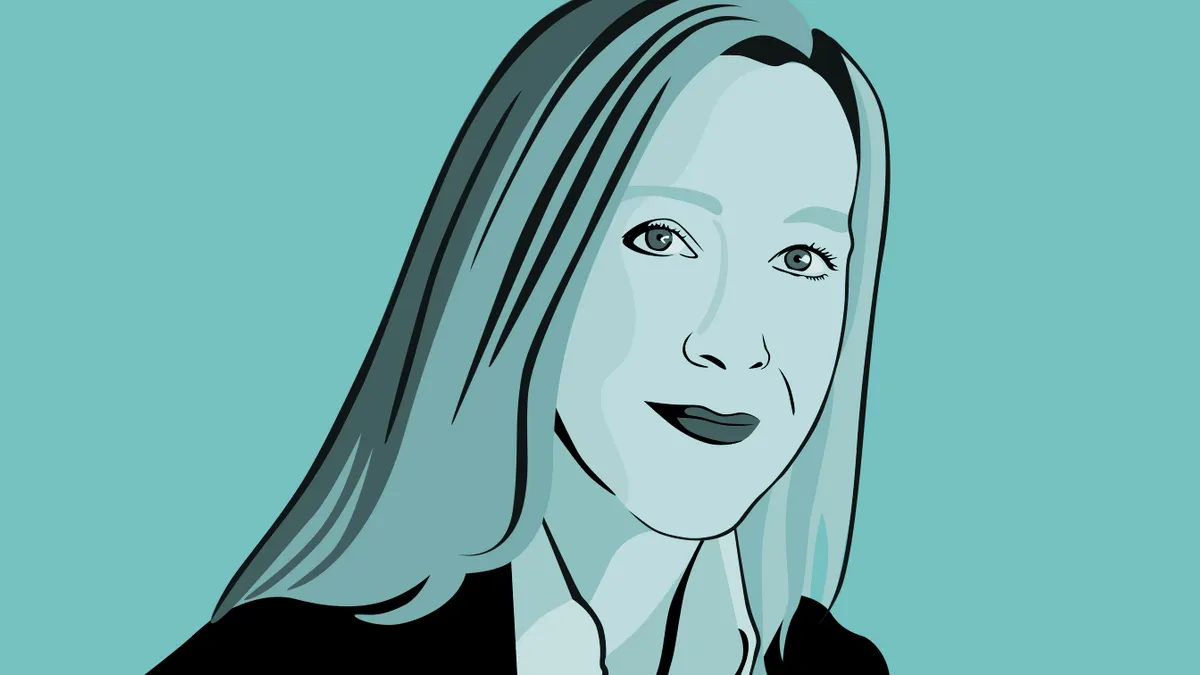- Pat Vincent-Collawn
- Position: CEO of PNM Resources, parent company for PNM in New Mexico and TNMP in Texas; Chairman of Edison Electric Institute
- Tenure: Joined PNM in 2007, elected CEO in 2010. Previous employment includes Xcel Energy's CEO of subsidiary Public Service Company of Colorado; Arizona Public Service Co.
- School: BA in Journalism from Drake University and MBA from the Harvard University School of Business.
Patricia Vincent-Collawn didn't set out to work for a utility. With a degree in journalism, she saw the marketing sector as a more natural fit.
"I was doing strategic consulting for PricewaterhouseCoopers [at the time]," Vincent-Collawn told Utility Dive. "I was flying all the time and I was never at home." Tired of the constant travel, Vincent-Collawn did what many career professionals do when they need a change of pace: she reached out to her network.
It just so happened she had a friend working at the Arizona Public Service Co., the biggest utility in the state. At the time, Vincent-Collawn recalls Arizona was exploring deregulation. Her lack of expertise in that industry proved to be the ticket she needed to land the job.
"I interviewed and they said, 'what do you know about electricity?' she recalled. "So I told them 'I pay my bills every month, switch the flip and the light comes on,' and they said 'perfect.' "
Coming in without an agenda proved a boon, she said, because she didn't have preconceived notions about the purpose of a utility. She was hired. But she didn't stay ignorant about how utilities work for long, and her outsider status allowed her to see the weaknesses of the power sector more clearly.
"[People saying] that "we've always done it that way" was the real first challenge" Vincent-Collawn faced.
"It was really changing perception internally and externally," she said. Externally, she found few people knew what exactly a utility did beyond controlling electricity. Amused, she recounted a time a close friend called and asked "what are you doing at that government job at 7 o'clock at night."
Internally, she found resistance to change among the older — and mostly male — colleagues. But she never felt her gender — and her upbringing — held her back from making those changes.
"I think that the changes when I stepped in were less about the fact there it was very male-dominated, but the fact that it was probably not as business savvy as it is now," Vincent-Collawn said. "I was really lucky in terms of having really wonderful mentors and sponsors, and I think I was really lucky in having a father [who supported her]. It wasn't until I got to college that I realized girls weren't supposed to do certain things."
Among some of her accolades, she is the first female CEO to chair the powerful trade group for investor-owned utilities, Edison Electric Institute. One of her first moves when she stepped into that role? Heading the first diversity and inclusion summit that the group ever held. It was 2017. Edison Electric Institute was founded in 1933.
To dig deeper, EEI undertook a workforce survey. For regulated utilities, like PNM, women occupy a higher percentage of the C-suite, the survey found. Even so there is still a lot of room for improvement, Vincent-Collawn acknowledged.
The climb to the top of the C-Suite is a long one, even for a man. To get there, women have to overcome much more doubt and own the ability to wear multiple hats, to speak softly and still be heard, to have ideas acknowledged without others interpreting actions as being pushy. To be confident and yet humble. In short, to be a kaleidoscope of contradictions.
The power sector is also shrinking thanks to major deals in the last couple of years, making that suite spot more elusive. If a woman really wants to make it to the top, Vincent-Collawn offered tips; learn how the company operates, nurture relationships with company board members, establish financial flexibility and a willingness to move places.
"Male or female, it's not easy to get to be CEO," Vincent-Collawn said. "The pyramid narrows a lot as you go up. But if you look at the skills CEOs need in the future, it's the ability to inspire the ability to work in teams the ability to delegate the ability to relate to all different stakeholders ... those are things that in general that women have been shown to do well in.”

















